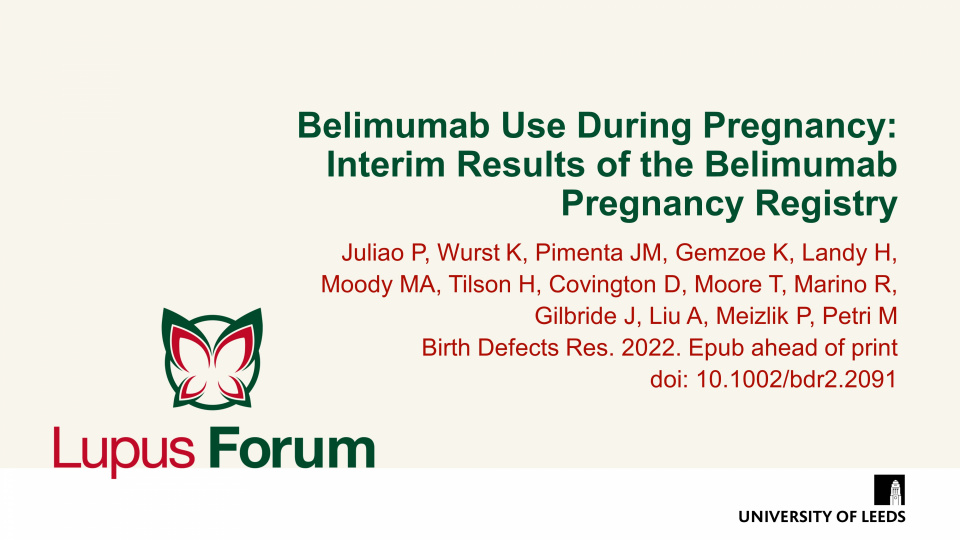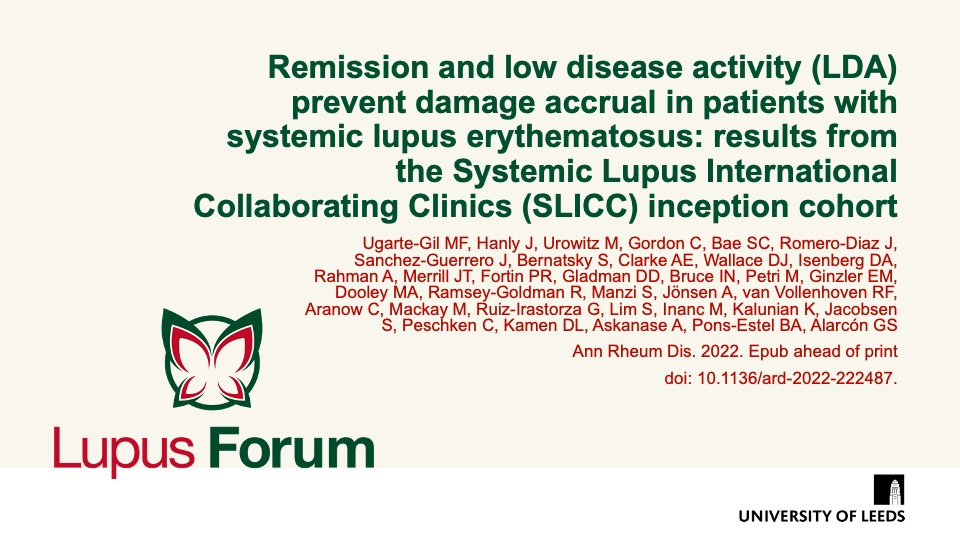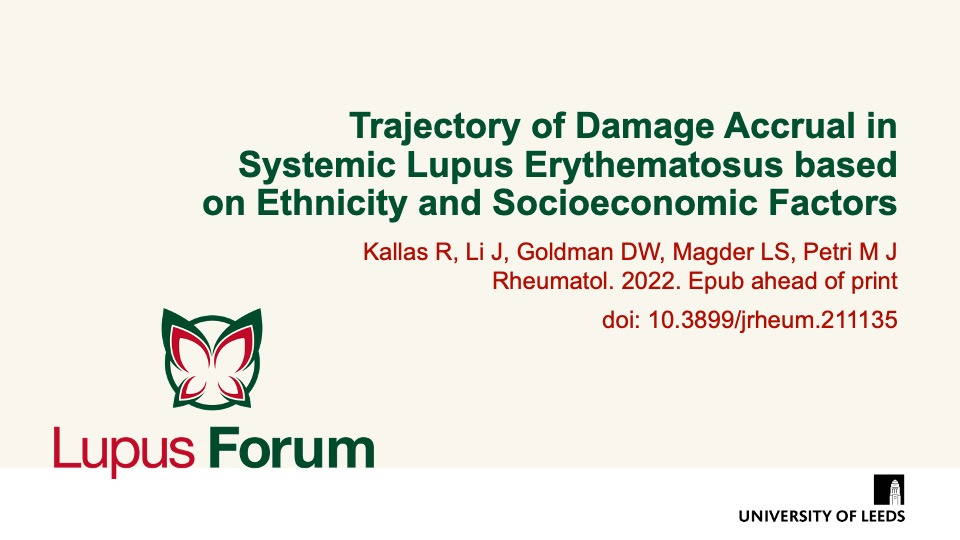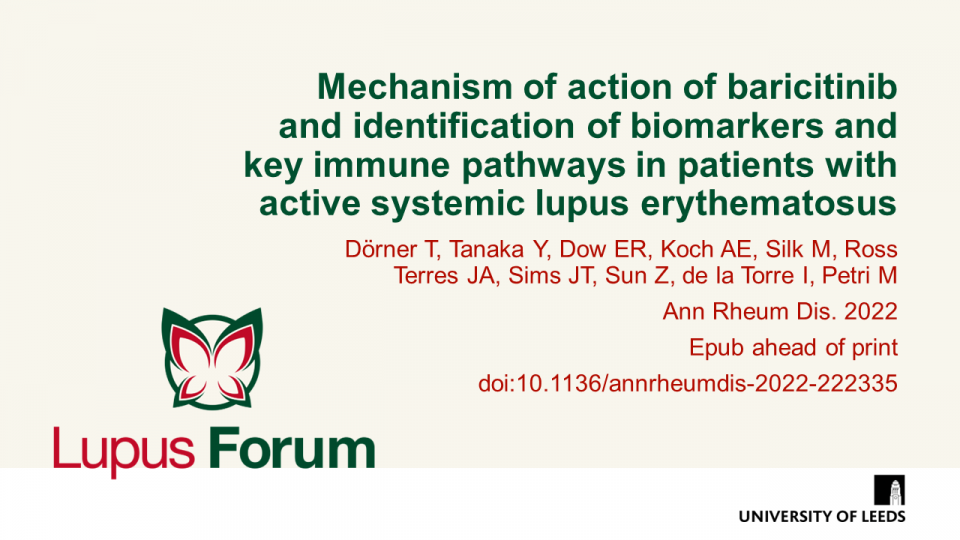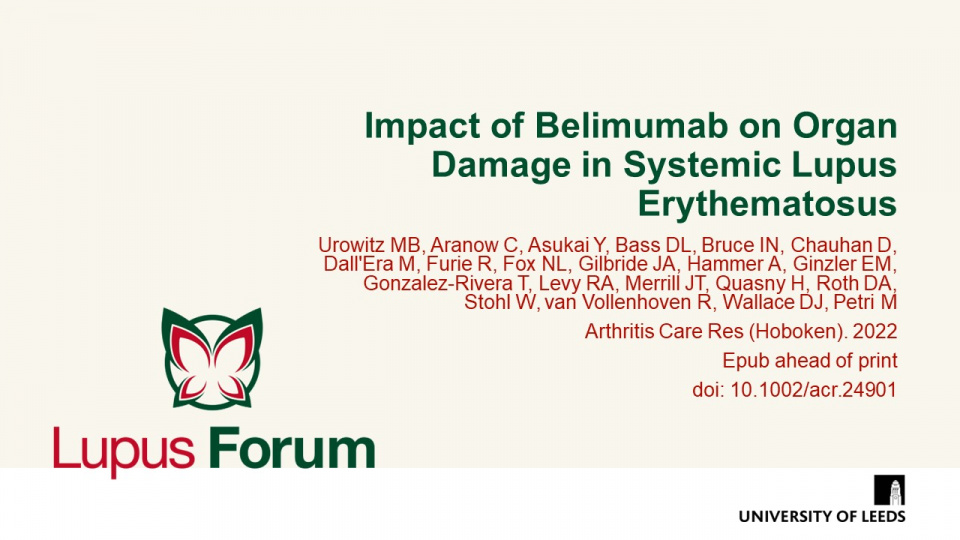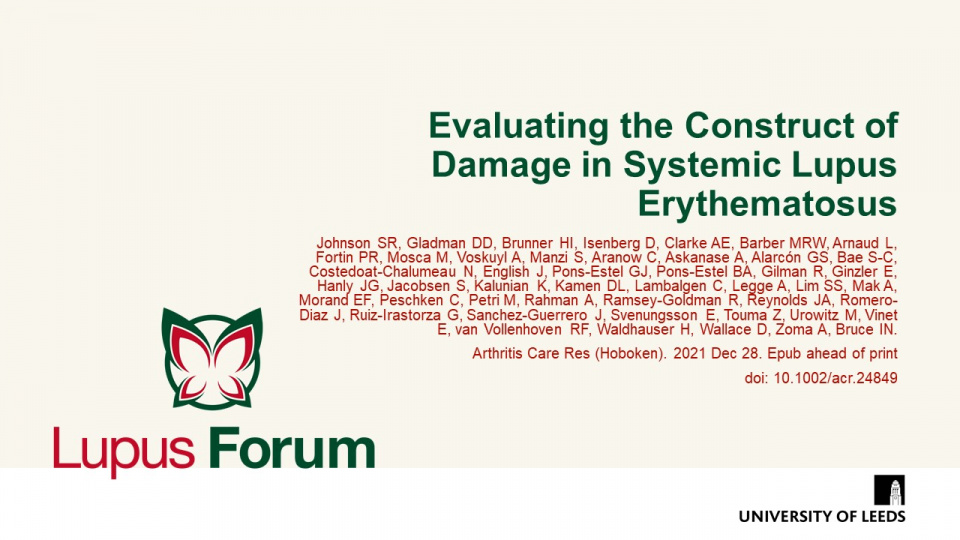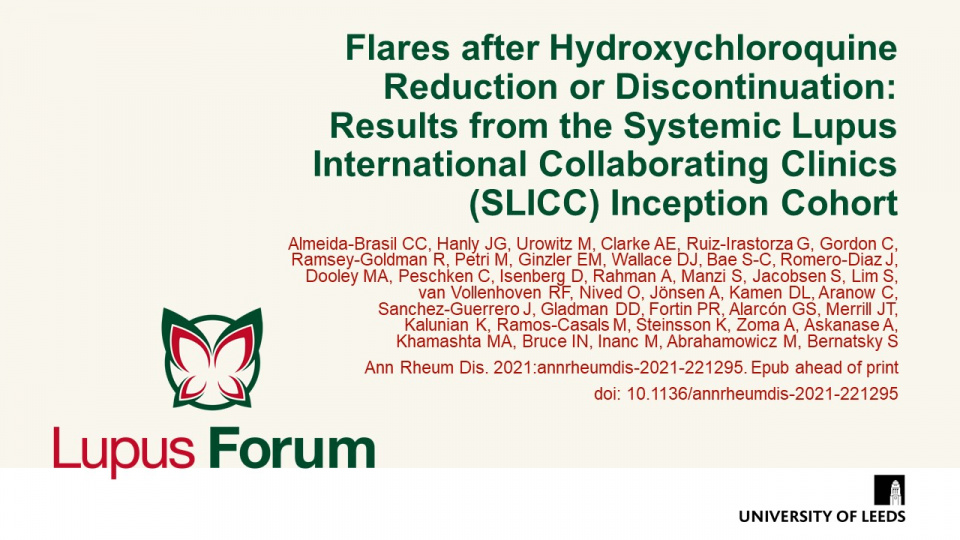Publications
Find coverage of the latest original articles on Lupus, focusing on those with data on therapeutic interventions and those that have clinical impact.
This activity is supported by an educational grant from AstraZeneca.
Belimumab Use During Pregnancy: Interim Results of the Belimumab Pregnancy Registry
Birth Defects Res. 2022. Epub ahead of print doi: 10.1002/bdr2.2091
There was no pattern or common mechanism of birth defects associated with belimumab within the Belimumab Pregnancy Registry (BPR) data.
Remission and low disease activity (LDA) prevent damage accrual in patients with systemic lupus erythematosus: results from the Systemic Lupus International Collaborating Clinics (SLICC) inception cohort
Ann Rheum Dis. 2022. Epub ahead of print doi: 10.1136/ard-2022-222487.
Large multinational, multiethnic cohort, study highlights the importance of treating-to-target in SLE.
Keywords:
Trajectory of Damage Accrual in Systemic Lupus Erythematosus based on Ethnicity and Socioeconomic Factors
J Rheumatol. 2022. Epub ahead of print doi: 10.3899/jrheum.211135
Large study confirms that cumulative damage accrual is faster in African-Americans, compared to Caucasians, highlighting that ethnicity plays the major role in damage accrual, regardless of socioeconomic status.
Mechanism of action of baricitinib and identification of biomarkers and key immune pathways in patients with active systemic lupus erythematosus
Dörner T, et al. Ann Rheum Dis. 2022. Epub ahead of print. doi:10.1136/annrheumdis-2022-222335.
Phase II study results suggest that baricitinib 4 mg downregulates key cytokines that are upregulated in patients with SLE.
Impact of belimumab on organ damage in systemic lupus erythematosus
Arthritis Care Res (Hoboken). 2022 Epub ahead of print doi: 10.1002/acr.24901
Review of clinical trial and real-world data on the effects of belimumab on organ damage in adult patients with SLE shows that belimumab reduces key drivers of organ damage, decreases organ damage progression and, in those with lupus nephritis (LN), decreases renal-related events.
Keywords:
Evaluating the Construct of Damage in Systemic Lupus Erythematosus
Arthritis Care Res (Hoboken). 2021 Dec 28. Epub ahead of print
Study identifies shifts in the paradigm of systemic lupus erythematosus (SLE) damage and develops a unifying conceptual framework to inform development of a revised SLE Damage Index (SDI).
Shifts in the concept of damage in SLE have occurred with new insights into disease manifestations, diagnostics, and therapy. Consequently, there is a need for a revised SDI, to incorporate additional factors that contribute to damage accrual.
Flares after Hydroxychloroquine Reduction or Discontinuation: Results from the Systemic Lupus International Collaborating Clinics (SLICC) Inception Cohort
Ann Rheum Dis. 2021:annrheumdis-2021-221295. Epub ahead of print
Evidence suggests that hydroxychloroquine (HCQ) reduction/withdrawal may be safe in some stable patients, but in other settings it may be associated with disease flare. Almeida-Brasil, et al. sought to evaluate SLE flares following HCQ reduction or discontinuation versus HCQ maintenance. Their data suggest that maintaining HCQ was associated with a lower flare risk than reduction or discontinuation, even in patients with low disease activity or remission.


